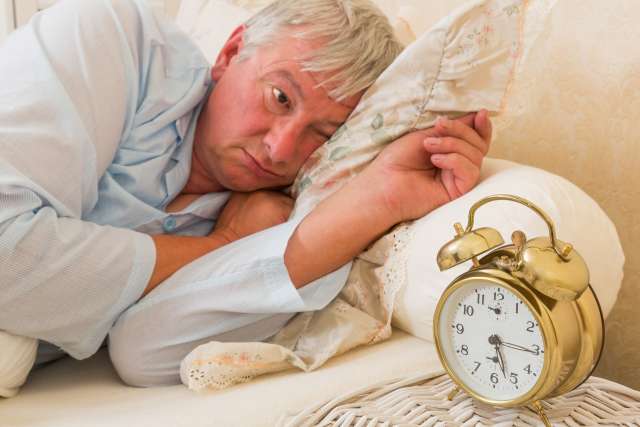Remember when you were a teenager and could sleep until noon? Now that you are older, it may feel like a daily struggle just to sleep later than a rooster.
Waking up early and experiencing disrupted sleep is a normal part of aging. But you should not resign yourself to lousy sleep at night and naps during the day.
Not getting enough quality sleep can increase your risk of chronic diseases, worsen existing health issues and lead to:
Understanding the underlying reasons you are struggling to sleep may help you find a solution.
Here’s what you need to know:
Why older adults sleep less
Experts recommend that adults get seven or more hours of sleep per night. However, once you hit midlife, your average nightly sleep decreases by 30 minutes every 10 years. A common misconception is that older adults don’t need as much sleep. But the truth is that they often struggle to get the amount of quality sleep they need.
Several factors contribute to sleep quality as you age. It’s often challenging to know whether sleep problems are a product of aging, health issues or an emerging sleep disorder. Sometimes, it may be a combination of things.
As you age, your sleep may be affected by:
1. Changing sleep patterns
Circadian rhythms are the daily fluctuations that influence your sleep-wake pattern — they are why you feel tired at night and awake in the morning. Those rhythms shift forward as you age, making you ready to go to bed and wake up earlier.
Age also affects your sleep architecture — how you move through the stages of sleep. Older adults tend to spend less time in deep sleep and more time in lighter stages of sleep. As a result you may wake up more often. Older adults wake an average of three to four times nightly, and are more aware of being awake.
2. Chronic health issues
People with multiple health issues are more likely to report getting poor quality sleep and less than six hours a night. Older adults with dementia or Parkinsons disease tend to have more changes to their sleep patterns than adults who don’t have those conditions. Other conditions that may affect sleep include:
- Anxiety
- Conditions that cause chronic pain, such as arthritis
- Diabetes
- Heart disease
If you take medications for your chronic conditions, the drugs or drug interactions can also cause sleep issues. More than 40% of adults older than 65 take five or more medications.
3. Hormonal fluctuations
Hormone levels rise and fall throughout life. Older adults often experience changes in melatonin levels — the hormone that regulates sleep. When your melatonin level naturally decreases with age, it falls out of alignment with your circadian rhythms, leading to changes in your sleep-wake patterns. Other hormones, such as cortisol and testosterone, also change with age and can disrupt sleep.
For people assigned female at birth (AFAB), menopause involves hormonal changes that affect sleep. Decreasing levels of estrogen and progesterone can cause night sweats and hot flashes that can interrupt sleep.
4. Lifestyle changes
As an aging adult, you may experience lifestyle changes now that you are no longer raising young children and may be nearing or already enjoying retirement. The change in routine, or lack of a routine, can affect your sleep schedule and how you spend your days.
Some older adults are also less physically active or social than they once were. People who develop chronic conditions or have mobility problems may not leave the house regularly, leading to less daylight exposure. All of these factors can affect circadian rhythms and sleep patterns.
5. Sleep disorders
According to the Sleep Foundation, some sleep disorders become more prevalent as you age, including:
- Insomnia, difficulty falling or staying asleep, affects up to 50% of older adults.
- Nocturia, the need to get up and urinate throughout the night, becomes more common with age, happens more in males and affects up to 80% of older adults.
- Restless legs syndrome, the irresistible urge to move your legs, is more likely to develop as you age and may impact one in four older adults.
- Sleep apnea, repeated pauses in your breathing as you sleep, is 1.7 times more common in adults age 60 and older, compared to adults ages 40 to 60.
Tips for getting better sleep as you age
Small changes can have a big impact on your sleep quality and quantity — and therefore, your health.
Try taking these steps to improve your sleep:
- Address underlying health issues to reduce symptoms affecting your sleep.
- Avoid caffeine, nicotine and alcohol close to bedtime because those substances either stimulate you or disrupt your sleep.
- Establish a sleep schedule that includes a consistent wake-up time and bedtime, along with a bedtime routine that might include preparing for the next day and a relaxing activity, such as taking a bath or reading.
- Expose yourself to natural light — especially in the morning hours — to help regulate your sleep-wake cycle.
- Increase physical activity to help you fall asleep more quickly and enhance your sleep quality.
- Make your room sleep-friendly by blocking all light and noise and adjusting the temperature to be comfortable.
- Stop using screen time at least one hour before bedtime because blue light can disrupt sleep.
If changing your sleep habits doesn’t improve the quality of your sleep, or you suspect a sleep disorder, your primary care physician can assess the situation and refer you to a sleep specialist, if needed.



